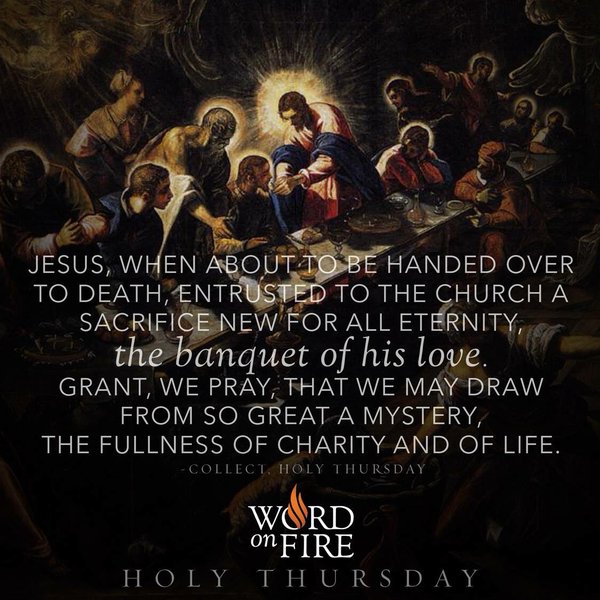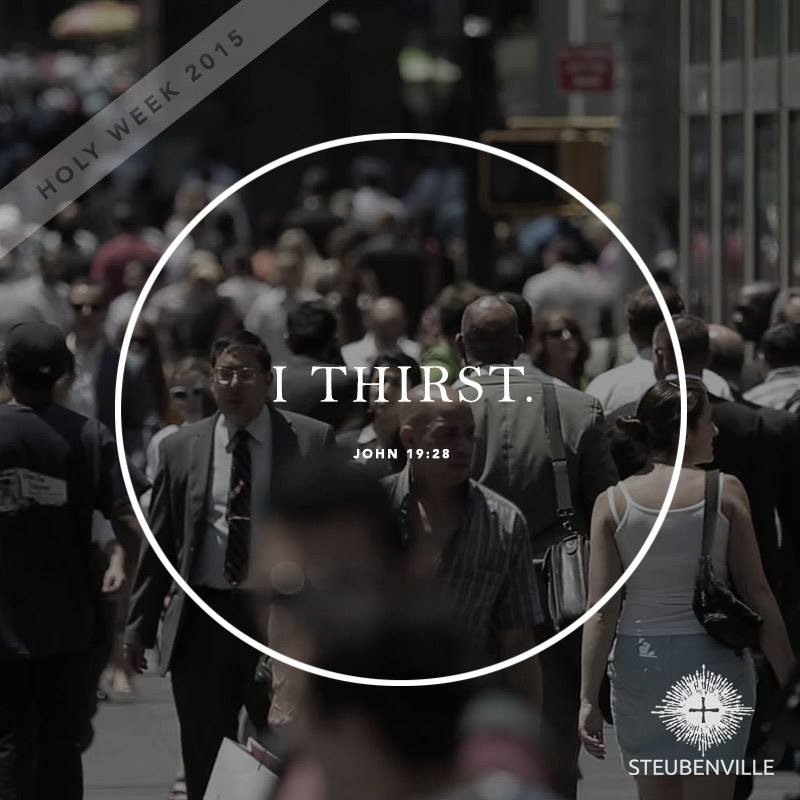Fr. Victor Brown, O.P., writes:
Shortly before his death, Pope Blessed John Paul II instituted another set of mysteries to be used by the Church in praying the Rosary. They are intended to help us meditate upon the public life of Our Divine Lord. The Holy Father called them “the luminous mysteries – the mysteries filled with light”. They are these: the baptism of Jesus by St. John the Baptist; his miracle of changing water into wine at the wedding feast of Cana; the proclamation of the gospel throughout Our Lord’s public life; the transfiguration, and finally the institution of the Holy Eucharist at the Last Supper.
Today we observe Holy Thursday, and the day when that Last Supper took place. We use the term “the LAST supper”, but actually it was the FIRST time in sacred history that the tremendous gift of the Holy Eucharist was given to the world. When we think of the institution of the Holy Eucharist, we necessarily think also of the institution of the sacrament of Holy Orders and of the Catholic priesthood, without which there would be no Eucharist.
Other than in extraordinary circumstances, we do not celebrate Mass – the Holy Eucharist – on this day except in the evening, to commemorate that supper at which Our Lord gave his apostles the gift of himself under the forms of bread and wine, and then empowered them to continue to make the Eucharist present and available to his people until the end of time. I hope that you will have the opportunity to begin the Easter Triduum, as it’s called, by attending the Mass of the Lord’s Supper this afternoon or evening. The word “triduum” comes from the Latin and means a period of three days. And the three days to which it refers are today – Thursday; tomorrow – Good Friday; and then Holy Saturday when we remember Our Lord’s lying in death before rising from the tomb as the sun of a new world rises to a new and eternal day.
Let us do our best, my dear friends, to live this triduum as the Church wants us to live it, and so to apply to ourselves the great graces of these days. As Our Lord and his apostles took their places at the table to begin that “last supper”, he said to them, “With great desire have I desired to eat this Passover with you”. Let us approach the Eucharist with a similar “great desire” to receive Our Savior as our food and drink. He gives himself to us; we receive him. Thus we enter into communion with Our Lord, not just today but as often as we receive this precious gift worthily. We rightly and fittingly call it “Holy Communion”; there is no better way of entering into communion with Christ.











